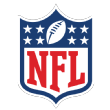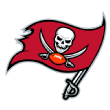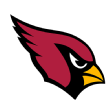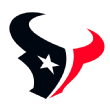2020 NFL offseason winners and losers: QBs, free agents, teams and trends

Let's break down some of the winners and losers from this NFL offseason. Some of the stories in the short term were obvious -- you don't need me to tell you againwho won the DeAndre Hopkins trade -- but I'm going to try to take a look at the bigger picture to see how players, teams, coaches and others around the NFL were impacted by the moves and decisions made over the past few months.
Let's start with a trio of young quarterbacks from the 2019 draft, all of whom are leaving the acquisition portion of the offseason as their teams' starters. It begins with the player who might have the biggest shoes to fill of any player in NFL history:
Jump to a winner/loser:
Clowney | Edwards-Helaire | Haskins
Lock | Minshew | Murray | Newton
Prescott | Rodgers | Stidham | Trubisky
Winner: Jarrett Stidham, QB, New England Patriots
Stidham is one of the most obvious victors of the past few months. We all knew the Patriots and Tom Brady would come to terms on a deal ... until they didn't. Then we all knew that the Pats were going to acquire Nick Foles or Andy Dalton or pull off some impossible run up the draft board for Tua Tagovailoa ... and that didn't happen either. Through the entire player acquisition window, the only competition the Patriots added for Stidham is veteran Brian Hoyer, who lost his last battle with Stidham for the backup spot in training camp in 2019. Barring a last-second move for Cam Newton, Stidham is going to be the Week 1 starter for the Patriots.
Merely having a chance to play is a huge opportunity for Stidham and one rarely afforded midround picks who aren't forced into action by injury. Imagine if one of the other teams looking for quarterbacks in that draft range last year took Stidham instead? The Panthers paid Teddy Bridgewater in lieu of handing things over to Will Grier (pick No. 100). Ryan Finley (104) is buried behind first overall pick Joe Burrowin Cincinnati, while Easton Stick (166) is third behind Tyrod Taylor and sixth overall pick Justin Herbertin L.A. One other late-round selection will be starting in 2020 -- see the next winner -- but there are midround picks who don't really get a chance to play meaningful football across their rookie deals. Stidham will get his.
The Patriots didn't exactly add any star weapons for their new starter, but they did address their threadbare tight end room by using third-round picks on Devin Asiasi and Dalton Keene. Retaining guard Joe Thuney on a franchise tag and getting back center David Andrewsfrom a pulmonary embolism means the Patriots should be well-positioned to protect Stidham. It's obviously way too early to say anything about how he will perform, but he has gone from being an afterthought to taking the reins for Bill Belichick & Co.
Winner: Gardner Minshew, QB, Jacksonville Jaguars
Likewise, the Jaguars cleared out a path for their 2019 sixth-round pick, as they traded away free-agent addition Nick Foles after paying him more than $30 million for four starts. Jacksonville then sat out the various free-agent quarterback options and didn't use either of its first-round picks on a signal-caller. The Jags even added Tyler Eifert at tight end and used a second-round pick on wideout Laviska Shenault Jr., though their desperate attempts to get anybody to take running backLeonard Fournette off their hands found no takers.
Again, even having a chance to take meaningful reps as a sixth-round pick is rare. The last sixth-rounder to throw at least 400 passes over his first two seasons wasTom Brady, who threw three as a rookie in 2000 and 413 while leading the Pats to a Super Bowl in 2001. Minshew is already way ahead of the game in terms of opportunity; now, with just Joshua Dobbs and sixth-round pick Jake Luton backing him up, Minshew should get a full season to prove he's an NFL quarterback.
Winner: Drew Lock, QB, Denver Broncos
Let's hit a 2019 quarterback trifecta! Lock flashed promise while going 4-1 across his five starts at the end of the season, though it's worth noting that those four wins came against the teams ranked 20th (Chargers), 26th (Texans), 27th (Lions), and 30th (Raiders) in pass defense DVOA. At the very least, he did enough for the Broncos to feel confident about opening the 2020 season with him as their starter.
While Denver held out some hope for luring Tom Brady, it didn't make a move for any of the other quarterbacks when Brady decided to stay east. The Broncos didn't even bring in a significant backup -- the depth chart behind Lock consists of Jeff Driskel, Brett Rypien and Riley Neal. This is Lock's team.
On top of that vote of confidence from general manager John Elway, no quarterback gained more weapons this offseason than the Missouri product. Lock already had a handful of exciting pieces in running backPhillip Lindsay, wide receiverCourtland Suttonand tight endNoah Fant. I can't pretend I'm the biggest Melvin Gordon fan, and it's not a great contract for the Broncos, but the running back can be valuable when he's healthy and protecting the football. Elway then used his first two selections in the draft on wideouts Jerry Jeudy and KJ Hamler.
Denver didn't address its problematic left tackle spot, but it did make a major addition on the interior by signing linemanGraham Glasgow to a $44 million deal. The Broncos finished up by adding experienced offensive coordinator Pat Shurmur, who has gotten Sam Bradford, Case Keenumand Daniel Jones to exceed expectations over the past few seasons. It's fair to be skeptical of Lock after just five starts, but outside of a left tackle, the 23-year-old has everything he could have asked for from his organization this offseason.
Loser: Dwayne Haskins, QB, Washington
On the other hand, there's a member of that 2019 quarterback class who might feel left out among all the additions. Washington did avoid the lure of using the second overall pick on a quarterback, but it did little to help its starting quarterback.
Haskins' receiving corps beyond Terry McLaurin was lacking last season, and the most notable free agents his team imported to help out its young starter wereCody Latimer and Richard Rodgers. Washington used midround picks on hybrid back Antonio Gibson and wideoutAntonio Gandy-Golden, but it also traded away star left tackle Trent Williams without adding a meaningful replacement.
Loser: Cam Newton, QB, free agent
Things haven't worked out for the former league MVP, who might have hoped to play out the final year of his deal with the Panthers while earning $19.1 million. Newton was instead cut, and the coronavirus pandemic has prevented him from finding a new team. He hasn't been able to conduct a public workout, though he has posted videos on Instagram that show him going through drills. In the meantime, the starting jobs and most of the prime backup jobs have been filled.
There are still at least seven teams that should be looking for a backup quarterback, including the aforementioned Broncos and Jaguars, who don't seem to want to challenge their young starters. The Cardinals, Rams and Seahawks all need a veteran backup, but there's little chance of Newton playing meaningful snaps for those teams in 2020.
The two most logical landing spots left for Newton are in the AFC. Let's start with the Titans, who gave Ryan Tannehill $91 million in practical guarantees over the next three years. Tannehill's hold on the starting job isn't going anywhere at that price tag, but the former Dolphins starter missed 24 games over his final four years in Miami. There's a reasonable chance he misses time this year, and the Titans currently have seventh-round picksCole McDonald andLogan Woodside behind their starter.
Tannehill was revelatory as a play-action passer last season, which fits what Newton does best. From 2017 through the first half of 2018, Newton posted a passer rating of 114.7 on play-action attempts, the seventh-best rate in the league. The Titans are built around Derrick Henry and their power-running attack, and it's not difficult to imagine how Newton could play a role in that attack. A few starts for the Titans could help rebuild his value before the 2021 offseason.
The ideal job for Newton would be in Pittsburgh. The Steelers should get Ben Roethlisberger back after he missed 14 games in 2019 with an elbow injury, but the longtime starter is 38 and has missed 38 games over his 16-year career. Mason Rudolph and Devlin Hodges were replacement-level quarterbacks last season, and Newton could viably make his case to serve as Roethlisberger's long-term replacement in Pittsburgh if he plays well in a couple of spot starts.
Loser: Mitchell Trubisky, QB, Chicago Bears
While the Bears started this offseason suggesting that Trubisky would be their Week 1 starter in 2020, their actions suggest that his future is tenuous. Chicago traded for Nick Foles, and in restructuring the former Super Bowl MVP's deal, it guaranteed Foles $21 million over the next three seasons. Then the team declined Trubisky's fifth-year option, which would have guaranteed a $24.8 million salary in 2021 for injury.
Failing to earn a fifth-year option pickup has typically been a bad sign. Eight other first-round quarterbacks have had their fifth-year option declined. None of them made it to a fifth year with the team that drafted them. Six of them -- Jake Locker, EJ Manuel, Christian Ponder, Brandon Weeden, Johnny Manzieland Paxton Lynch -- didn't take an NFL snap anywhere in Year 5. Teddy Bridgewater spent his fifth year sitting behind Drew Brees, while the only one of the bunch who saw meaningful action was Blaine Gabbertin San Francisco.
Trubisky will instead have to look toward a teammate for hope. The Bears declined Kyle Fuller's fifth-year option after injuries and inconsistent play, but after a breakout season, they used the transition tag to keep him around before matching a four-year, $56 million offer sheet. Fuller ended up making much more than he would have if the Bears had simply picked up that option in the first place. They have spent years trying to surround Trubisky with talent to confirm their belief that he was a franchise quarterback in the making. Now he has to overcome their skepticism and the odds.
Winner: Jordan Howard, RB, Miami Dolphins
There was little trade interest in Howard before he was dealt to the Eagles last offseason, and after seeing his rushing yards and yards-per-game figures decline in each of the past three seasons, I figured that the league would see him as a relatively replaceable zone runner. Alfred Morris, a similarly productive rookie, wasn't able to ever get a significant deal.
Howard instead got a two-year, $10 million pact from the Dolphins with $4.8 million guaranteed in Year 1. Miami also added veterans Ereck Flowers and Ted Karras in free agency before using first- and second-round picks on offensive linemen. The Dolphins traded for Matt Breida, but they didn't use a significant pick on a running back, and Breida has been a boom-or-bust player with injury issues during his time with the 49ers.
Howard landing meaningful guaranteed money, a starting job and a team that invested heavily in offensive linemen has to be considered a victory.
Loser: Jadeveon Clowney, DE, free agent
In a similar way to Newton's, Clowney's market has been depressed by medical concerns and an inability to evaluate those issues under the current climate. For all we hear about how NFL teams don't focus on sacks, Clowney's three-sack total from 2019 hasn't helped his case. The former first overall pick is unquestionably talented, but the massive deal he might have received under typical circumstances after a more productive season hasn't arrived.
Naturally, it seems like the logical thing for Clowney to do is sign a one-year deal with a contender and try to rebuild his value in the hopes of signing a big deal next year. Under normal circumstances, that idea makes sense. This isn't a normal season, though, and there's a chance that Clowney -- and many other veterans -- might not be able to sign big contracts next offseason.
As Jason Fitzgerald of Over the Cap wrote last week, the uncertainty around 2020 stadium and ticket revenue could lead to a meaningful drop in league income, which would result in a shrunken salary cap. Teams have seen the cap rise by an average of just under 6% over the past decade, up from $120 million in 2011 to $198.2 million in 2020. With players improving their share of revenue in the new CBA, the cap was expected to rise well north of $200 million in 2021. Now, Fitzgerald projects, the cap could fall somewhere between $130 million to $175 million in 2021, depending on how revenues are affected by the pandemic.
Obviously, it's too early to project what the situation will be like next year, and the league could come to an agreement with its players to push future revenues forward to try to account for a reduced cap figure in 2021, but we could be looking at a different financial landscape next spring. Teams that were planning for a $210 million cap would be forced to cut veterans to get compliant, flooding the market with talented players. Many free agents would likely look for one-year deals in advance of a massive projected cap increase in 2022 and 2023, when local revenue would return to form and the league would be flush with television revenue from new deals. Clowney might end up stuck signing back-to-back one-year deals as a result.
Losers: Teams with lots of guaranteed money tied up in 2021
While we're again months and months away from having any idea about what the cap will look like next year, there are teams that have to be sweating the possibility of a reduced cap. Take the Eagles, who already have $263.3 million on the books for 2021, much of it tied up in players who are core pieces of the roster. Getting down to $210 million would require a couple of restructures and cuts of veterans like DeSean Jackson, Alshon Jefferyand Marquise Goodwin. Moving to $175 million would require another $35 million in savings.
The Eagles would find a reduced cap most difficult, but teams like the Saints, Falcons and Steelers would also be in compromised positions. Again, the league and players could come to terms on a deal that could restore some of the missing revenue, and the NFL would get a bump from a possible 17-game season in 2021, but the alternative looms as a dangerous scenario for several of the league's highest-spending teams.
Winner: David Johnson, RB, Houston Texans
I hit the most crucial parts of the DeAndre Hopkins tradewhen it happened in March, but it's quietly a huge victory for Johnson. With the Cardinals slapping the transition tag on Kenyan Drake, Arizona was clearly moving forward with Drake as its starting running back. It wouldn't have been surprising to see Chase Edmonds as the No. 2 behind him. Johnson was likely in line to get cut, where veterans like Devonta Freeman, Carlos Hyde and LeSean McCoy haven't found a market.
Instead, the Texans traded for Johnson as part of the Hopkins deal, suggesting that Bill O'Brien sees him as a meaningful asset. With Houston treating Duke Johnson like a third-down back last season, David Johnson has a clear path to lead-back duties in an offense that ranked 11th in rush offense DVOA a year ago. There's even a chance that the Texans pay Johnson the $9 million he's due in 2021, which seemed out of the question when the offseason began.
Loser: Aaron Rodgers, QB, Green Bay Packers
While I wrote about why the Jordan Love decision might not be as bad as it seems for the Packers, it's fair to say that Rodgers' position can't feel as good as it did a few months ago.
Green Bay seemed to set a deadline on the Rodgers era, and the only shopping it did to help Rodgers this offseason was to swap out tight endJimmy Graham for wide receiverDevin Funchess. I still think the Packers could go after a veteran wideout like Kenny Stills, but you can understand why Rodgers would be cranky right about now.
Loser: Los Angeles Rams
One year ago, the Rams were coming off a trip to the Super Bowl. Every team wanted to hire a coach who vaguely resembled Sean McVay. Their young core seemed set to compete for another title. After a frustrating 2019 campaign left the Rams struggling for answers on offense and out of the playoffs for the first time since McVay arrived in town, it was clear that Los Angeles needed to make changes during the offseason.
I'm not sure those changes really helped, as this offseason felt like a repudiation of the Rams' philosophy. They lost legendary defensive coordinator Wade Phillips and longtime special-teams coordinator John Fassel. Just two years after handing out huge contracts to Brandin Cooks and Todd Gurley, they punted on both of those deals, cutting their former MVP candidate at running back while trading the wide receiver to the Texans. They were even publicly called out for not paying Gurley and Clay Matthews bonus money, which should hurt the organization when it tries to sign free agents in the future.
Furthermore, the Rams didn't really resolve any of their problems this offseason. After trading two first-round picks to acquire Jalen Ramsey, they still haven't signed their star cornerback to an extension. They swapped out Dante Fowler Jr. for edge rusherLeonard Floyd and used their top two picks to replace Cooks and Gurley, but they didn't do anything to replace star inside linebacker Cory Littleton.
Crucially, L.A. almost entirely ignored an offensive line that crumbled in 2019, re-signing aging left tackle Andrew Whitworth while choosing to hope for a healthier 2020. With Jared Goff posting the league's worst passer rating under pressure in 2019, McVay will need to conjure up a solution to get his prize pupil back on track this season.
Winner: Tampa Bay Buccaneers
Well, duh. The Buccaneers have Tom Brady and Rob Gronkowski now. Even beyond those two additions, though, the offseason has gone extremely well for the Bucs. They needed to retain the core of their wildly underrated defensive line and managed to do so by franchising Shaq Barrett and re-signing both Jason Pierre-Paul and Ndamukong Suh.Their biggest hole heading into the draft was at right tackle, and they had to move up only one spot to get Tristan Wirfs.
This offseason was something out of a dream for Tampa Bay, which has ahigher win projection in Vegas than the Patriots for 2020.
Winner: Jason Licht, GM,Tampa Bay Buccaneers
A particularly big winner in this scenario is Tampa Bay's general manager. Licht has been the general manager for six years, and the Bucs have gone 34-62 during his time in charge. That's the third-worst mark in football. The team has cycled through three coaches over that six-year span, and while Licht nailed first-round picks on wide receiverMike Evans and defensive tackleVita Vea, he's also the one who drafted Jameis Winston and stuck with the embattled quarterback over the past five years. Licht also whiffed on most of his second-round selections, most notably kicker Roberto Aguayo, who was the low point of an almost comical inability from the organization to identify a competent kicker.
Licht is by all accounts a nice guy, and he has hit on a number of his midround selections too. Teams are generally too aggressive in getting rid of their top decision-makers, and I'm not saying Licht should have been fired. Typically, though, general managers with that sort of track record don't get to enter a seventh offseason, and when Licht did, he managed to convince Brady and Gronkowski to come to town. Nobody would have batted an eye if the Bucs let go of Licht last offseason; now, if the Bucs live up to expectations, he might very well win Executive of the Year.
Loser: Tight end streamers against the Arizona Cardinals
If you played daily fantasy football or chose to stream your tight ends on a week-to-week basis in standard fantasy football, you knew about the Cardinals. Last year, Arizona allowed 309 points to opposing tight ends in PPR leagues, an average of 19.3 points per game. No other team was above 244, and the league average was 195 points, or just under 12.2 points per contest. It's the second-worst season any team has posted against tight ends over the past 20 years, trailing only the 2013 Cardinals. Everybody from T.J. Hockenson to Ross Dwelley had their best games of the season against Arizona.
Vance Joseph-led defenses don't always know what to do with tight ends -- the Broncos ranked 26th against tight ends during his two years as Denver's coach -- but the Cardinals did something to address the problem this offseason by drafting Isaiah Simmons with the No. 8 overall pick. They've suggested that the talented Clemson defender will begin his NFL career at linebacker, where he's likely to see plenty of action against tight ends in coverage. Arizona has managed to get the least out of athletic, hybrid defenders like Deone Bucannon and Haason Reddick in years past, but Simmons could very well ruin one of the easiest exploits in fantasy football.
Winner: Clyde Edwards-Helaire, RB, Kansas City Chiefs
Did any first-round pick end up in a more advantageous landing spot? Andy Reid told general manager Brett Veach that he thought Edwards-Helaire was better than Brian Westbrook before the Chiefs drafted the LSU back with the final pick of the first round. The only running back Reid had drafted before the third round across his career as a head coach and personnel executive before Edwards-Helaire was LeSean McCoy, who was the 53rd pick in the 2009 draft.
While the Chiefs have suggested that Edwards-Helaire will split time with incumbent Damien Williams, the future belongs to the rookie. Williams is a free agent after the season and wasn't healthy for most of 2019 with hamstring issues. The Chiefs also said the same thing about Kareem Hunt and Spencer Ware in 2017, and when Ware went down with a knee injury in the preseason, Hunt was handed the job and finished his rookie year with 1,782 yards from scrimmage. Edwards-Helaire should turn into one of the most productive backs in football; the only real question is when.
Losers: Rookie coaches (and players)
It should go without saying that this is incredibly low on the list of upheavals caused by the pandemic, but while the NFL has managed to keep free agency and the draft on schedule, there's no realistic way for football teams to practice. With team facilities closed, organized team activities (OTAs) have been postponed and will likely be canceled. Rookie minicamps are being conducted remotely. It's unclear whether teams will be able to undergo a full training camp.
As a result, newcomers seem likely to suffer. Some rookie players already have a difficult time catching up with the speed of the league and the complexity of professional playbooks; now they'll have to try to catch up on the finer points over Zoom. Likewise, rookie coaches who are attempting to install a new scheme and work with new players already were going to have their practice time reduced over the summer by the new CBA. They're almost surely going to miss out on any pre-training-camp practice time.
Naturally, the teams with new head coaches and coordinators -- the Browns, Giants, Panthers and Washington -- are the ones that are most likely to suffer from this lack of teaching time. Teams with stability could benefit. In an indirect way, though they could not have possibly predicted what was going to happen, teams such as the Steelers and Texans who dealt away much of their draft capital could end up feeling better about their decisions, given that rookies may struggle to make an impact in 2020.
Winners: Veterans negotiating contracts with the Houston Texans
You probably knew that the Texans weren't going to get out of a winners and losers column unscathed. I'll leave the Hopkins deal aside, but it's worth noting just how dramatically the contracts the Texans handed out differ from those of their peers. Slot corner Bradley Roby signed a three-year, $31.5 million deal when guys like Chris Harris Jr. and Brian Poole were forced to sign smaller contracts and Logan Ryan remains a free agent. Wideout Randall Cobb inked a three-year, $27 million deal when the wideout market totally cratered.
The biggest deal, though, belongs to Laremy Tunsil. The Texans didn't sign the offensive tackle to an extension after trading two first-round picks and a second-rounder to the Dolphins last August. Tunsil said that even he would have made that trade from the Dolphins' perspective, and he continued to dabble in negotiations when he chose to represent himself in extension talks with O'Brien.
Tunsil did well. He ended up signing a three-year, $66 million extension, meaning he'll make a total of $76.9 million over the next four years. The deal shattered the tackle market, where the largest average annual salary belonged to Lane Johnson at $18 million per season, and Johnson's deal is really a paper extension for cap purposes with base salaries that will void next offseason. The largest real deal for a tackle is Trent Brown's four-year, $66.8 million pact from last offseason. Brown averaged less than $17 million per season on his deal. Tunsil averaged $22 million on his extension and $19.3 million over the next four years. Nobody in the league got a bigger contract this offseason after adjusting for positional expectations. Tunsil even gets to hit free agency again before turning 30. Not bad for a part-time agent!
Winner: Kyler Murray, QB, Arizona Cardinals
I mentioned three other 2019 quarterbacks earlier, but I'll add a fourth to the list with the first overall pick from last year's draft. It isn't complicated, of course: Murray was given the gift of DeAndre Hopkins, who will add to a receiving corps that already featured Christian Kirk and Larry Fitzgerald. The Arizona offense was also better after adding Kenyan Drake last season, and Drake was retained on a transition tag. Kliff Kingsbury's offense will not lack for weapons.
I'm still a little worried about the offensive line, but the Cardinals did re-sign left tackleD.J. Humphries after his best season and added Josh Jones to compete with Marcus Gilbert on the right side. Last year's MVP was a second-year quarterback who took a leap forward after his team spent the offseason surrounding him with the right weapons. It's asking a lot of Murray to follow in the footsteps of Lamar Jackson, of course, but Murray should have the pieces he needs to take a leap forward in 2020.
Winner: Dak Prescott, QB, Dallas Cowboys
I'll finish up with one of the most interesting unresolved sagas of the offseason. No, Prescott doesn't have his deal yet, though the star quarterback will have long-term financial security once he signs the $31.5 million franchise tag. The Cowboys continue to say they intend to keep Prescott around on a long-term deal, but they did add Andy Dalton and suggested last week that Prescott "has to accept what [the Cowboys] want to pay him."
Of course, Prescott doesn't really have to accept that. The Cowboys can franchise him again in 2021 for $37.8 million, but with a third franchise tag costing them $54.3 million, they realistically have to get Prescott signed before the end of the 2021 season. And if the Cowboys think Prescott's demands are unreasonable now, they're not going to get cheaper, given that the likes of Deshaun Watson and Patrick Mahomes are going to raise the market by signing extensions of their own.
I've got a much bigger piece on the Prescott situation in the works, so I'm not going to get into the will they/should they questions here. What I will say, though, is that Prescott is in the catbird seat. The Cowboys let go of Jason Garrett, but they retained offensive coordinator Kellen Moore and star wide receiver Amari Cooper before adding another valuable weapon in rookie wideout CeeDee Lamb. Prescott lost veteran center Travis Frederick to retirement, but he's well-positioned to deliver a big season for an offense that finished second in DVOA a year ago. If Prescott does that, well, the Cowboys might need to accept what Dak wants to be paid.
Related Video
Related Topics
- SPORTS
- ESPN
- HOUSTON TEXANS
- AARON RODGERS
- DREW LOCK
- DAVID JOHNSON
- BILL BARNWELL
- JORDAN HOWARD
- DWAYNE HASKINS-JR
- WASHINGTON REDSKINS
- JACKSONVILLE JAGUARS
- DAK PRESCOTT
- CAM NEWTON
- CLYDE EDWARDS-HELAIRE
- CHICAGO BEARS
- NEW ENGLAND-PATRIOTS
- GARDNER MINSHEW-II
- JADEVEON CLOWNEY
- DALLAS COWBOYS
- JARRETT STIDHAM
- ARIZONA CARDINALS
- GREEN BAY-PACKERS
- NFL
- TAMPA BAY-BUCCANEERS
- DAILY
- DENVER BRONCOS
- KYLER MURRAY
- MITCHELL TRUBISKY


























